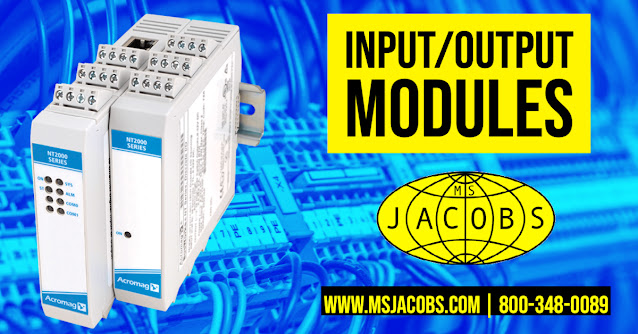In industrial applications, input and output (I/O) modules monitor and control both analog and discrete signals.
Analog signals are continuous signals that vary over time, such as temperature, pressure, or voltage, and analog input modules monitor these signals. These modules convert the analog signals into a digital form that the control system can process. A programmable logic controller (PLC) or a distributed control system (DCS) receives the converted signals for monitoring and control purposes.
Discrete signals, on the other hand, have only two states: on/off, open/closed, or high/low. Discrete input modules monitor these signals. These modules detect changes in the state of the discrete signals and communicate this information to the control system.
Analog output modules process analog signals. They receive digital calls from the control system and convert them into analog signals that control analog devices such as actuators or motors.
Discrete output modules control discrete signals. They receive digital calls from the control system to activate or deactivate discrete devices such as relays, solenoids, or valves.
In summary, I/O modules monitor and control analog and discrete signals in industrial applications. They allow for the conversion of signals from the physical world into a form that can be processed by the control system and vice versa, enabling real-time monitoring and control of industrial processes.
Acromag’s I/O and signal conditioning lines feature more than 100 transmitters, isolators, alarms, and computation modules for process control applications. If networked I/O is required, Acromag offers analog and discrete I/O modules for Ethernet, Modbus, and Profibus.
